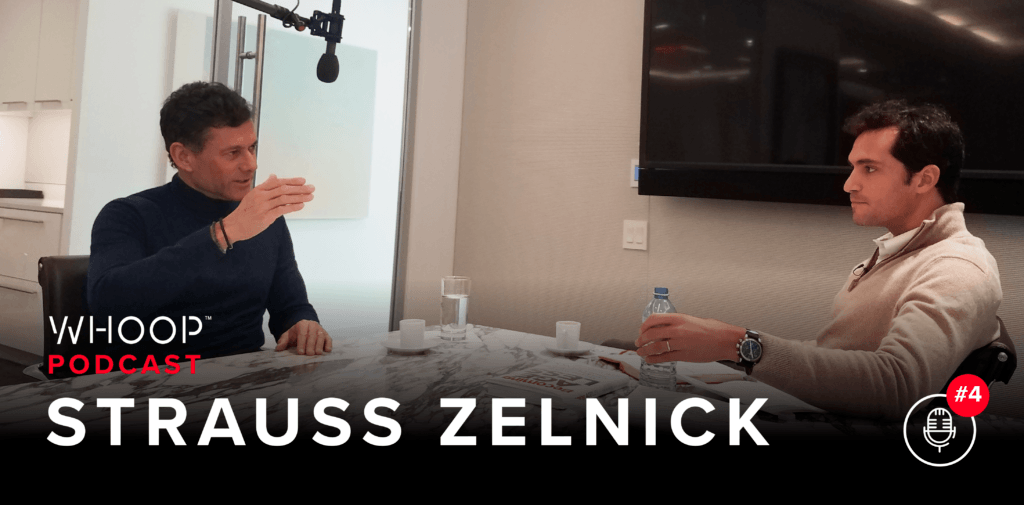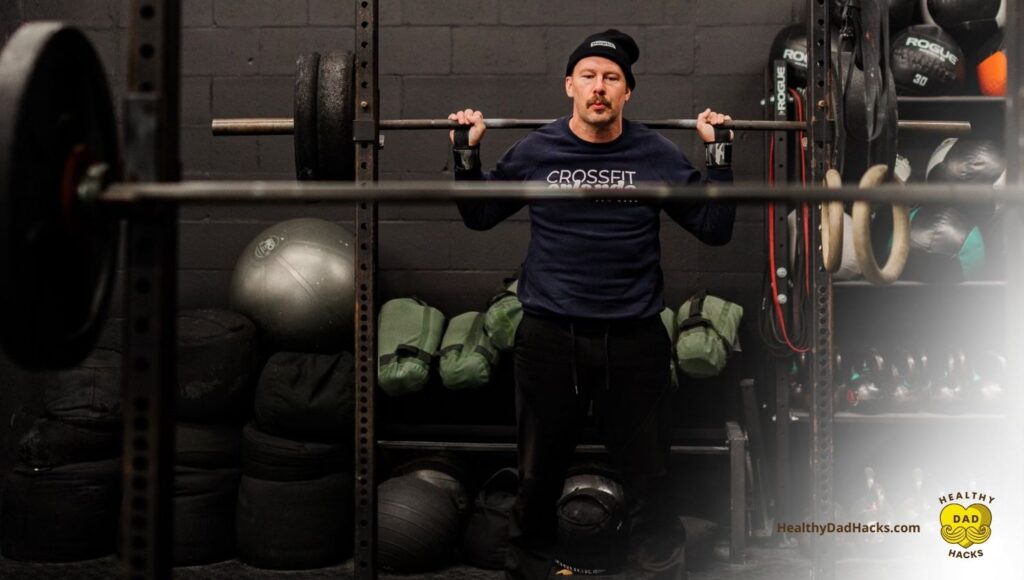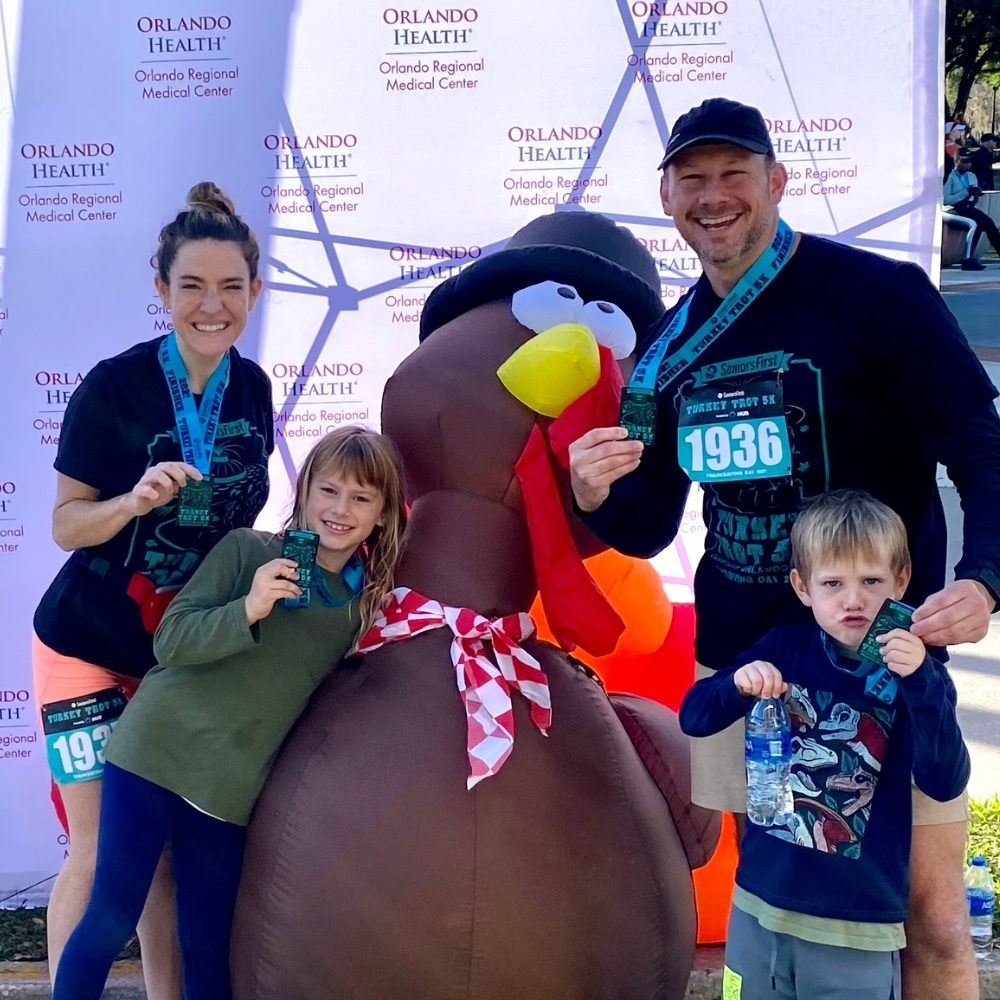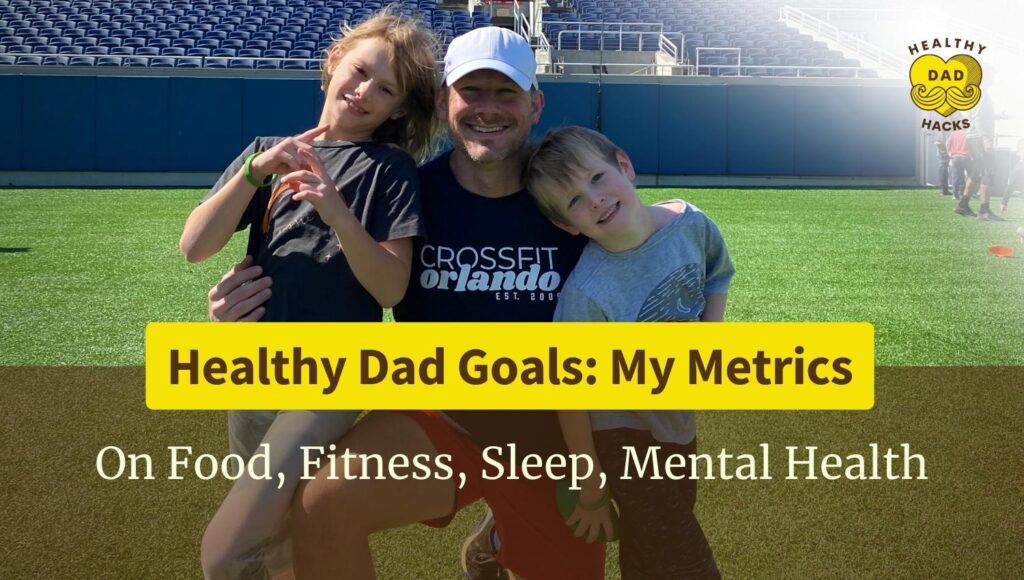Strauss Zelnick, the author of Becoming Ageless, was a guest on the Whoop Podcast and shared this:
“Research says you can eat a phenomenally strict diet, get lots exercise, not smoke, and you’ll extend your life — but only by a couple years. The question is, what does late life look like?”

Wait one second.
I can invest weekly in my healthy Dad goals (some listed below), and it’ll only have a marginal difference in how many more years I’ll live??
- High protein, whole food diet
- Walk outside every day
- CrossFit
- Great sleep
- Avoid seed oils
- Drink half my weight in oz. of water
- Limiting my supplements (multi collagen powder is a staple)
- Limit artificial sugar
- Find ways to de-stress through self care tactics for Dad
- Avoid sitting all day (thanks to my standing desk!)
This is paradigm-shifting. To really drive home the point:
- Drinking lots of water won’t extend my life from 72 to 92??
- Staying consistent with exercise doesn’t dramatically improve my chances that I live past 85??
- Getting good sleep doesn’t tack on 8.5 years of life??
Nope — at least that’s what the data shows.
Oh boy.
Strauss lit a fire underneath me, and I continued to research. More specifically, genes, and their role in life expectancy.
Average Life Expectancy in the U.S.
Via the CDC, the average life expectancy in the U.S is:
- Both sexes: 76.4 years
- Males: 73.5 years
- Females: 79.3 years
Now, let’s see how genes impact these averages.
Average Life Expectancy and Genes
Here’s where things get interesting.
Via Scientific American:
A person’s life span is thought to be largely determined by the combined effects of genetics and environmental factors.
The research also suggests that:
Exceptional longevity — living one to three decades beyond the average U.S. life span of approximately 80 years — runs strongly in families.
So, genes are a huge factor in how long you’ll live — no matter how much of a health nut you are. Drink 1,000 oz. of water daily or never eat a donut — you still may inherit certain genetic variations that predispose you to certain diseases that’ll decrease your life expectancy. Bummer.
How much do Genes matter?
It’s worth noting that there is debate on how much genes factor into your life span. Some studies show that the impact is only 15 to 30%. Nevertheless, genes matter to some degree.
Strauss Zelnick Podcast Takeaway
Back to the Strauss interview.
Answering the question of how much genes matter in life expectancy was not the purpose or intent of the podcast interview. It’s also not fueling my research in all of this.

This is more about:
Understanding how current lifestyle choices impact your quality of life in your later years — if your genes allow you to make it to 80, 90, or 100!
Don’t invest in your health now with the assumption you’re simply extending your life (remember, you can only scientifically do that by a few years). Invest so that you have multiple decades of:
- Waking up without debilitating pain
- Avoiding major injuries & surgeries (think hip or knee replacements)
- Vigor and energy for hobbies
- Rough and tumble play with your kids
- Enjoying the sports you love
- Travel without physical limitations (walk, explore, find, seek…make memories)
- And of course, chasing your Grandchildren (without breaking something)
The Superstars of Longevity
If you want to nerd out on gene data, look up the vast amount of research around folks who reach their 90s and into the century mark. For example, Centenarians (100s) have a unique immunity.
Here’s how these superstars of longevity are classified, if curious:
- Nonagenarians (people in 90’s)
- Centenarians (100’s)
- Semi-Supercentenarians (105-109 years)
- Supercentenarians (110+)
Dad’s Final Thoughts
My healthy lifestyle isn’t about adding years. It’s about adding QUALITY years.

The concept of a healthy lifestyle doesn’t guarantee a longer life expectancy has been a big mental re-work. And for someone who is 44 — it couldn’t have come at a better time.
For years I’ve walked around thinking that I’m doing the little things to extend my life. Now I’m walking around thinking I’m investing in my health to improve my quality of life in the later years (and if I skyrocket past 73.5, cool too!)
Exercise is less about how I look (don’t get me wrong, I’m still a little vain), and more about paying it forward. I see the care of my body, mind, and spirit through a different lens. Help me today. Help me down the road.
Who else wants to thrive in their 60s, 70s, and hopefully beyond?
You got this, Dad!
Can you win at Dadhood AND everywhere else in life? I'm just crazy enough to believe we can. With the right knowledge, hacks, habits, and motivation — we can crush it ALL!


About Eric
Eric Sharp is the founder of Healthy Dad Hacks. He married the love of his life (Sarah) and proud Dad of a blended family (Hazel & Roman). When not thinking about being a better Dad, he enjoys; CrossFit, entrepreneurship, eating carnivore, collecting Michael Jordan sports cards, music, and fancy sneakers.
[Picture: Turkey Trot 2021]






